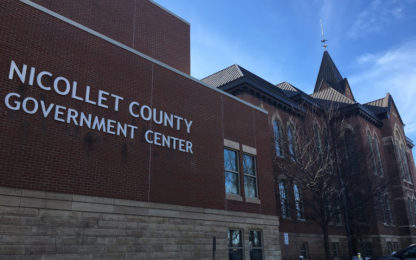Minnesota Senate approves package of GOP health care bills

By STEVE KARNOWSKI Associated Press
ST. PAUL, Minn. (AP) — The Minnesota Senate gave bipartisan approval Thursday to a package of Republican-authored bills aimed at making health care more affordable, accessible and transparent.
The bills included one for greater oversight over and licensing for pharmacy benefit managers — companies that serve as middlemen between insurers and patients that are supposed to use their purchasing clout to hold down drug expenses. The chief sponsor, Sen. Scott Jensen, said at a news conference that the system isn’t working.
But the Chaska physician said not all the rebates the manufacturers pay to the middlemen make it to patients in the form of savings, and the bill would open that up to scrutiny. He said the revenues and profits for the three biggest pharmacy benefit managers — Express Scripts, CVS Caremark and Minnesota-based Optum — are growing while the costs of prescription drugs keep rising.
In an interview, Jensen said Republicans might have held back from more regulation in the past, but a “sea change” is underway and they recognize the need.
“We’re going to try to be thoughtful and cautious but we have to do it,” he said.
Other bills that passed the Senate by wide margins Thursday included one to let patients enter into direct “primary care service agreements” with doctors to bolster not replace their insurance. Another would provide for more transparency in hospital billing. And one more would make it faster for allergy patients who need epi pens to get them in emergencies from pharmacies, while other allergy patients who carry epi pens could step in and share them in life-threatening situations.
“These are a number of serious bills,” Senate Majority Leader Paul Gazelka, of Nisswa, said as he called for the House to support them. “These are real reforms. This isn’t about nipping at the edges. These are things that actually move the ball forward.”
Thursday’s bills were part of a series of health care legislation emerging from the Senate’s GOP majority. Companions to some of the less-contentious measures are advancing through the Democratic-controlled House, some as part of a much larger health and human services bill. But others are more contentious, such as a GOP-backed plan to renew the state’s reinsurance program, which Democrats want to replace.
During the debate on the primary care service agreements bill, the GOP majority rejected a Democratic amendment to establish Gov. Tim Walz’s proposed OneCare health insurance program, which would let consumers buy into a public program similar to the state’s MinnesotaCare program for the working poor.
That move drew criticism from Assistant Democratic Leader Jeff Hayden, of Minneapolis, who said Senate Republicans are blocking real progress on health care while congratulating themselves for bills he said would make only small changes to the existing system.
“Minnesotans shouldn’t have to worry about getting the health care they deserve,” he said in a statement. “They’re counting on us as their government to step in and help with more than an empty promise.”









